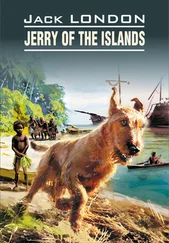‘On that side of the line,’ I pointed to the indifferent sea, ‘you can return to your houses and families, but as prisoners in an enemy ship, and you shall for ever bear the bitter taste of defeat on your backs. On this side of the line,’ and, arrow-like, my arm pierced the heart of the dark inland hills, ‘you march to your deaths — or to honour, fame and glory. You decide.’
I myself took the first step, together with Private Beltrán and the tongue-talker, both of whom I was gripping firmly by the arms, and nine of my men followed me, their step steady, their heads held high. Those who stayed behind avoided our gaze, their heads bowed between their sunken shoulders, an instant of indecision depriving them for ever of their status as soldiers and as men.
‘Anyone else?’ I boomed. The only reply was the echo of my own words. ‘Quick march then. To conquer glory.’
6th June 1982
— Yesterday, shortly after crossing the first hills, we entered a zone of eternal mists, and since then we have been roaming aimlessly in a milky light, without colour or form; only by continually shouting can we keep together. The cold is intense. The supplies are enough for only two more days and, in such conditions, living from hunting, as we had planned to do, is quite impossible. The old man with the tattoo, whom we had brought with us as a guide and interpreter, has taken advantage of the fog to escape. Enraged, I set about the tongue-talker with blows, he having been charged with
looking after him, and he can now barely stand. I must learn to control these accesses of rage that still dominate me. No harm done this time; after the flight of the
Kelper
, he is no longer of any use to us.
9th June 1982
— We are lost still in the interminable fog, wandering aimlessly, our eyes seeing only the infinitude of the colour white, a thousand times worse than the black stain of darkest night. This is how the nightmares must be of those born blind. Today the head-count gave ten; we have lost two men: Sergeant Peña and Corporal … The cold prevents me from sleeping, which is now doubly demoralising, because only in dreams do my eyes recover their sight. I am writing blind.
7th June 1982
— Yesterday we had to cross a river of stone: we dragged ourselves over rocks taller than a man standing, groped our way forward or fell and hurt ourselves. Lieutenant Bermúdez broke an arm and lost all his equipment. The other nine of our party are battered and bruised but still in one piece, though only three of us still possess our full armaments and munitions.
9th June 1982
— I have found an infallible method to prevent myself losing count of the days. With my knife I make a notch in the butt of my FAL, then count the notches on my fingers.
9th June 1982
— We no longer feel hunger and have grown accustomed to the cold and the eyelessness. And we have learned to love this fog now that we know it is the hand of God that covers our eyes the better to guide us.
14th June 1982
— I know not where to begin, I know not where to begin. I have seen more things in these last two days than in the whole of my previous life, and, if I write, it is not in the hope of passing it on, but merely to discharge the pressure that boils within me and threatens to make me explode. Two days ago Private Beltrán and I, the only survivors of our heroic platoon, were advancing through the frozen desert of perennial fog when my outstretched hands came across a solid wall so smooth that there was no doubting it was a thing of human manufacture. I brought my eyes as close as I was able, to see of what material it was made, and my surprise knew no bounds when they met only with a boundless transparency, as if the clean air had candied to solid rock to halt the fog’s advance. From within that rock, a deep, gravelly voice, the likes of which I had never heard before, greeted me in perfect Castilian, pure and distilled like the air that bore it:
‘Major X. We have been expecting you. Welcome to Invisible Argentina.’
I found what followed less interesting, so I skipped over it. If the dates were correct, Cuervo had been whiling away his days in the San Carlos POW camp, composing an alternative version of the end of the war to the exact measure of his teenage fantasies, but God only knows if this was what he’d written at the time or only what his ravaged mind had managed to scavenge from Emilio’s damaged words. An impeccably costumed gaucho had opened the doors of the Great National Estancia to him, where the last two starving survivors were welcomed with a sumptuous ceibo-wood-smoked barbecue served on grills of silver. Dozens of men in traditional dress shared the long carob-wood trestle tables, at the centre of which, majestic, stood the Cordobese armadillo. These were the true natives of the Islands: they claimed to be direct descendents of the Homo argentinus described by Florentino Ameghino, thus confirming the genius of the patriotic scientist’s theory: man had had his origins in Argentina, though not, as he had once thought, in the River Plate, but on the Islas Malvinas. Uncontaminated by immigration or foreign influence, they had distilled the essence of the Argentinian race and maintained its purity to the present day.
‘These savage tribes that surround us,’ his guide had explained to Major X, ‘serve multiple purposes. Their primitive techniques for working the land provide us with necessary raw materials, and are a convenient route for dealings with the mainland, enabling us to keep our presence secret. The bellies of their women incubate our cloned embryos and the commerce of their meat grants us the necessary quota of pleasure, as you will notice the absence of women in our number. With women, duplicity and dissent make their entrance, and we must do without them if we wish seamlessly to consolidate the great Argentinian family. This fog, which we generate with our climate control machines, protects us both from unexpected visitors and from detection by enemy planes or satellite. Only those whom we call can reach us here. Our voices have been guiding the great men of the Fatherland from the beginning. They spurred San Martín to cross the Andes, Rosas to fight the French and the English, Uriburu and Aramburu to discipline the plebeian rabble, the Armed Forces to take power on 24th March 1976 and the Islands on that glorious 2nd April 1982; and they spurred you, Major, to leave Puerto Howard and seek us out. We knew you were the man for the job. The Malvinas war is simply the first battle of the Third World War, which will culminate with the conquest of the world by Argentina. The corrupt Empire of the North is no longer capable of saving it from the Communist threat; the time has come to act, we were only waiting for the right man to guide us, the new San Martín. You, Major X, are that man.’
My God, I thought as I read; this is worse than James Bond. There were even secret weapons that reduced entire cities to rubble in a matter of seconds, satellites that blocked international communications and computers that deposited the world’s monetary reserves in the Central Bank of the Argentine Republic. Free of the fetters colonialism and imperialism had imposed on the continent, Argentino-Malvinense civilisation had outstripped all the nations of the globe and, after the defeat of the English, its imperium spread day after day across the world:
20th June 1982
— A glorious national holiday. After the capture of the Little Prince in his flagship, the Task Force surrenders to us in full. Belgrano’s ensign flies over the enemy’s ships, which now turn their prows north.
9th July 1982
— A glorious national holiday. Surrounded by their own fleet, the English choose to surrender. Argentinian troops enter London in triumph.
Читать дальше











